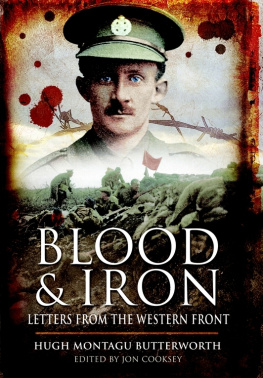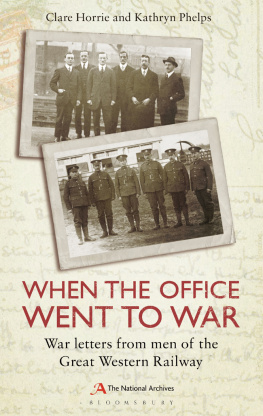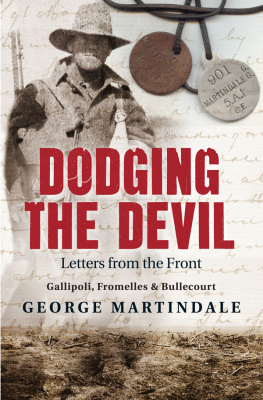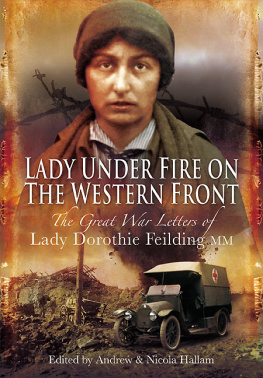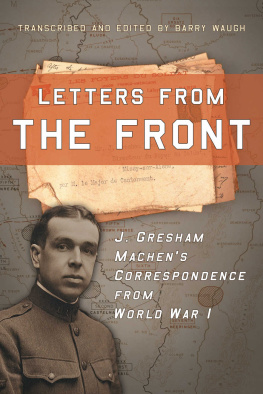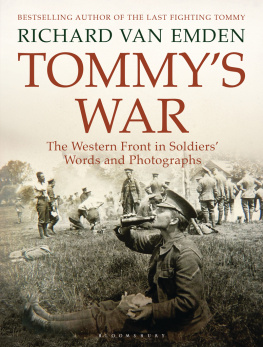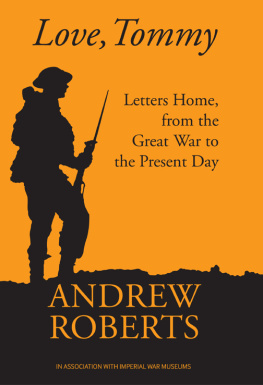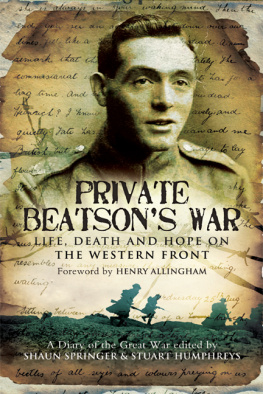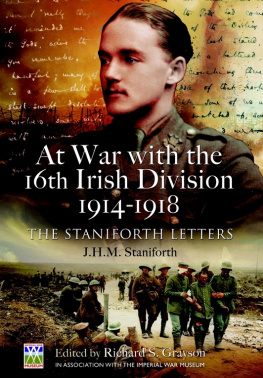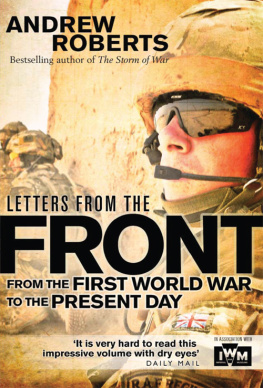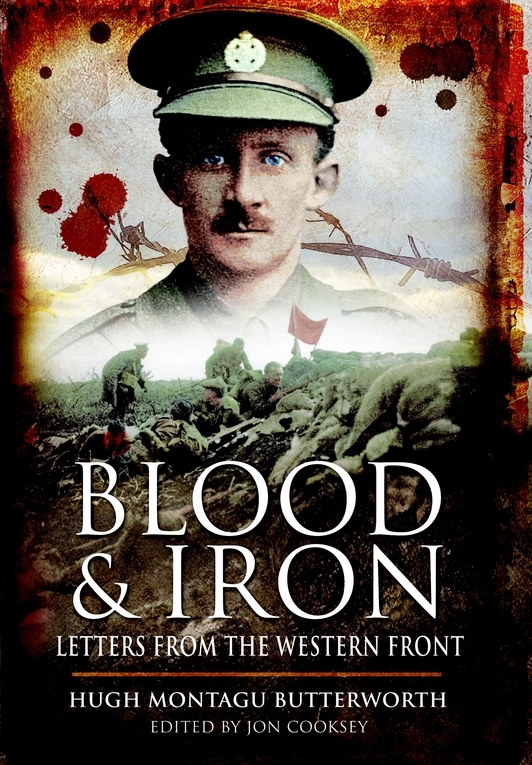Acknowledgements
When I set out to research the historical and contextual introduction to this reprint of Hugh Montagu Butterworths letters from Flanders, little did I realise that it would take me well beyond my usual bounds of grubbing around in various military records and archives. I have done a good deal of that of course, as Hughs letters deal exclusively with his very short just four months period of service before he was killed in action in September 1915, but the work has taken me into realms that have been unfamiliar territory. I have found myself straying into areas of family and institutional history, into cricket and tennis archives; to Lords, the MCC and the All England Club at Wimbledon and to consulting sporting experts as well as those who have a deep knowledge of the military aspects of the Great War as it was fought on the Western Front in 1915.
This book, therefore, would not have been possible without the wholehearted support, help, advice, enthusiasm and encouragement of a great many people with a deep knowledge of and expertise in their particular historical field. In particular, I must thank the second Hugh Montagu Butterworth for instigating the project, for it was his emotional reading of Hughs last letter almost on the spot where his half-brother disappeared for ever in 1915 that opened my eyes to the possibility of a reprint. During the course of my subsequent research I spent time tracking down Hugh Butterworths academic and sporting history and consulted numerous archival collections. The help and assistance I received was at all times prompt, courteous and unfailingly supportive and I must record my gratitude to the following, in no particular order, who went out of their way to answer a range of queries, send material and discuss and comment on drafts: Terry Rogers, Honorary Archivist Marlborough College; Dr Robin Darwall-Smith, Archivist University College, Oxford and author of the definitive history of that ancient institution; Margaret Mardall and Catherine Smith of the Charterhouse School archives; Roger McDuff, previously Headmaster of Hazelwood Prep School in Surrey, and his PA Samantha Dalziel; John Hamblin, who had already researched Hugh for his own project, for the sight of valuable documents; Pam White for information on the Warde family of Squerryes Court; Michael Barlow, author of the biography of Hughs cousin George Butterworth, for his help on the Butterworth family tree and in tracing Hazelwood material; and Christine Clement, genealogist of New Zealand.
Accessing archival material half a world away is always a challenging prospect and I owe a particular debt of gratitude to Richard Bourne, Curator and Archivist of the Wanganui Collegiate School Museum in New Zealand, for without his terrific enthusiasm and his desire to help in any way from the other side of the world, the story of Hughs time as a schoolmaster in New Zealand would have been sketchy at best. My thanks go to him and to Rob van Dort, also of Wanganui Collegiate School, who helped with the gathering of photographic material. Thanks also to Donal Raethel, archivist with Archives New Zealand in Wellington, who, with a friendly Kia ora, managed to get Hughs probate documents to me in double-quick time.
I am indebted to Graham McKechnie, sports journalist for the BBC and sometime off-spinner, with whom I have worked on several projects and who served as a sounding board for all my theories and queries regarding the sporting life of both Hugh and his father.
In terms of understanding Hughs military life and his service with the 9th Battalion of the Rifle Brigade in Ypres during the summer and autumn of 1915, many have given of their time and knowledge to help clarify various issues. Special mention must be made of several people who really did go out of their way to provide me with material from which to make a judgment.
Andy Pay must surely rank as Britains Mr Rifle Brigade. He has been a tower of strength during our many conversations regarding a regiment with a fine military tradition and has loaned sheaves of original documents and constructively criticised drafts. Quite frankly what Andy does not know about the Rifle Brigade during the Great War is probably not worth knowing. It has been my good fortune to have had his support. I also had the good fortune to be able to call on the expertise of Terry Denham in arriving at the casualty figures of the 9th Battalion, the Rifle Brigade for the period 25 September 12 October 1915.
In a very similar vein, Ralph Whitehead in the United States has provided another strong pillar to lean on for information, images and sage advice regarding the German accounts of the regiment and division that opposed Hughs battalion on 25 September 1915. Ralph expended an enormous amount of energy and put in a great deal of work on my behalf and I always looked forward to his emails. I looked forward also to emails from Sebastian Laudan in Germany. Sebastian too spent a lot of his valuable time either translating or discussing some of my theories on the German troop movements post-25 September 1915 and for that I am grateful. Alastair Fraser also helped by sending information on German units. I would like to record my sincere thanks for all their efforts.
Malte Znaniecki was also very kind in supplying German images. I should like to express my appreciation to Aurel Sercu, living near Ypres in Belgium, who was kind enough to offer to give up his valuable time to photograph the battlefield around Railway Wood as it is today in fact I believe he made two trips.
Iain McHenry, also living and working in Belgium, gave freely of his time and made sure I had sight of several key documents relating to the work of 177 Tunnelling Company of the Royal Engineers, about which he is an acknowledged expert. Peter Barton too was always willing to discuss the operations of the tunnellers on the Bellewaarde Ridge and helped in supplying several images of the front lines in September 1915.
Thanks must also go Nigel Steel, historian at the Imperial War Museum in London and to Alan Wakefield and David Parry of that institutions photographic archive for their help in tracing prints of the aerial photographs I had seen referred to in operation orders issued prior to the battle.
Taff Gillingham is always a trusted point of reference. I can almost see him crack a wry smile on the other end of the line when I ring him with another question about buttons, buckles and badges but he and his chums are always spot on. Thanks Taff for indulging me! Chris Baker, ex-Chairman of the Western Front Association and founder of the hugely respected Long, Long Trail website, is also a trusted voice. I am grateful to Chris for checking some early drafts and for his comments on them, as I am to commissioning editor Rupert Harding for his never less than sound good sense. Thanks also to my copy editor Alison Miles whose eagle-eye enabled me to make several improvements to the text and no doubt spared me a few blushes in the process.
Peter Donnelly, Curator at the Kings Own Royal Regiment Museum, Lancaster, assisted with enquiries regarding John Allens military service, and Jon Wilkinson and Jordan Szabo at Pen and Sword Books have again developed some super artwork.
It is with great sadness that I record my thanks to the late lamented Lieutenant Colonel Will Townend RA retired. An unrivalled artillery guru who really helped clarify for me the assembled weaponry of the 14th (Light) Division and 2 Group Heavy Artillery before his untimely death on 6 April 2010, Will was a valued colleague and friend. I and many others will miss him terribly.

